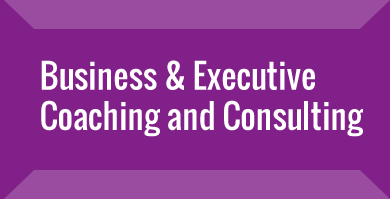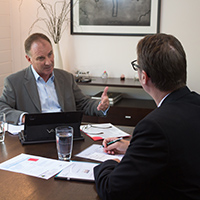Last week, I introduced the concept of negative habits with Marshall Goldsmith’s initial 10 ‘bad habits’ This week I have followed up with an additional 10 ‘bad habits’ along with a range of suggestions on how to change negative habits in the workplace.
Let’ me re-iterate what I introduced last week. It can be challenging for business owners and executives to improve their interpersonal skills. We tend to believe the habits that have helped us rack up achievements in the past will continue to foster success in the future.
It’s natural for successful people to believe that what contributed to their past accomplishments will continue to work for them. They also assume that they can – and will – succeed, no matter what.
The most common bad leadership habits aren’t personality flaws. They’re challenges in interpersonal behaviour - the often outrageous annoyances that make the workplace substantially more noxious than necessary.
According to fellow executive coach Marshall Goldsmith, author of What Got You Here Won’t Get You There: How Successful People Become Even More Successful!, you might be interested in reviewing a list of negative business owner and executive habits...to see if they might apply to your workplace behaviour.
These faults do not occur in isolation; they involve one person interacting with another. Goldsmith compiled a list of 20 negative habits after years of working with top Fortune 500 executives. Last week I outlined 10 of those habits and this week another 10 negative habits, plus ways to change a bad habit:
- Claiming credit we do not deserve. The most annoying way to overestimate our contribution to any success.
- Making excuses. The need to reposition our annoying behavior as a permanent fixture so people will excuse us for it.
- Clinging to the past. The need to deflect blame away from ourselves and onto events and people from our past; a subset of blaming everyone else.
- Playing favorites. Failing to see that we are treating someone unfairly.
- Refusing to express regret. The inability to take responsibility for our actions, admit we’re wrong or recognise how our actions affect others.
- Not listening. The most passive-aggressive form of disrespect for our colleagues.
- Failing to express gratitude. The most basic form of bad manners.
- Punishing the messenger. The misguided need to attack the innocent who, usually, are only trying to help us.
- Passing the buck. The need to blame everyone but ourselves, and
- An excessive need to be “me.” Exalting our faults as virtues, simply because they embody who we are.
How to Change a Bad Habit
Luckily, these bad habits are easy to break. The cure for failing to express gratitude is remembering to say “thank you.” For not apologising, it’s learning to say, “I’m sorry. I’ll do better next time.”
If you recognise yourself on the list of 20 bad habits, you can do something about it. Fortunately, it’s easier to stop doing something than to undergo a major personality transformation.
It can be difficult, however, to let go of firmly ingrained behaviours. One way to facilitate on-the-job change is to ask for help from a select group of peers.
Get good information about what needs to change. A 360 degree feedback assessment is usually an effective means of determining how others perceive you.
A qualified, experienced business or executive coach, such as PINNACLE Business Solutions' Phil Daly, can help you obtain accurate feedback from your peers, bosses and direct reports.
Once you’ve identified a bad habit or a number of bad habits you would like to change, work with your coach to implement a plan of action.
With thanks to Coach2Coach newsletter, February 21, 2009



























